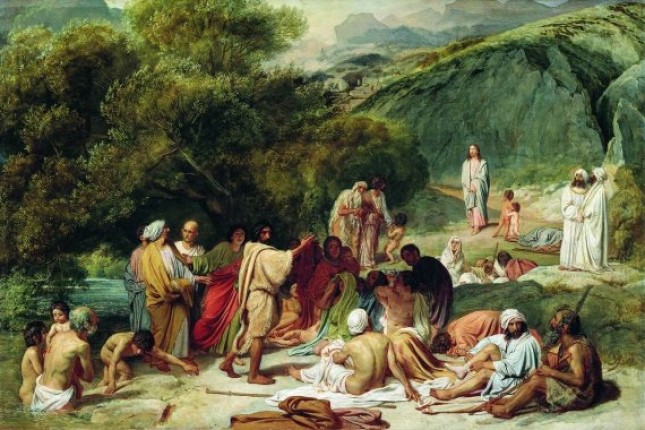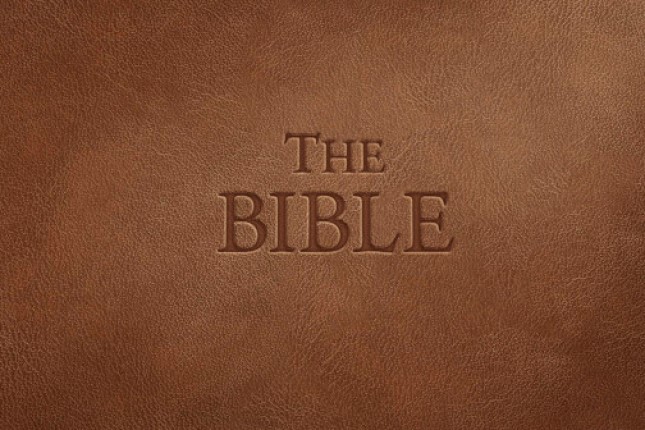How can one find hope in the midst of enormous uncertainty and anxiety about what the future may hold?
Grab a Bible and start reading. Millions of individuals have done this for nearly 2000 years when they needed to find light in the darkness. It seemed to have worked rather well − and it still does, as the Bible is the most read book in the world. It is the most often quoted text in history.
The Bible sold nearly 3.9 billion copies during that time span alone, according to a list of the most read books based on the number of copies sold over the last fifty years. It far surpassed any other book. In 2022, the podcast "The Bible in a Year" topped the US podcast charts and ranked as the second most popular podcast in the US.
As millions of Christians gather around the world to celebrate Christmas, and the gospel about the child Jesus being born at night in a poor stable and laid in a manger is read aloud in churches around the world, one may wonder: Why is the Bible so popular − even in the age of what may be the most secular epoch in human history?
Bible highlights
One reason could be that the Bible's collection of books has been the best at showing people the way to more light in times of mental darkness, struggles, crises, or wars, or just when people are looking for basic truths and direction in life.
In the Bible, God always reveals himself as light in situations where there is darkness. According to Genesis, the first thing that God creates is light. Christ was born in the middle of the night, when it was the darkest. At the hour of his death on the cross, an eclipse turns the entire sky completely black; but, shortly after his resurrection, he appears to his followers to brighten their days.
The Bible is a book that teaches you how to uncover the truth, how to navigate the world's difficulties, and how to pick the best path to peace and joy. It introduces the world of heaven and the supernatural, as well as explaining why there is always hope. Despite difficulties, despair, and gloom on Earth, hope always exists, since biblical hope transcends what is humanly possible.
Nihilism, which is very common in our time, says that the world is meaningless and that traditional values are not good ways to live. Because of this, it makes people feel cynical and hopeless, which is the exact opposite of the Bible's message of hope.
According to nihilism, everything is open to interpretation; nevertheless, the Bible asserts that there is an objective truth, regardless of whether or not we believe in it. Not everything in this world can be measured only by human feelings and thoughts.
These are two very different world views. Reality is described in the Bible as a dualism between the visible world (the material world) and the spiritual, unseen realm, whereas atheism denies the existence of anything other than what empirical materialism investigations can prove.

The Bible as a basis for science
Despite the fact that many people in the current world draw a clear divide between the Bible and science, there is in fact a connection, as the Bible taught Westerners how to reason.
Nothing comes from nothing, according to science. Everything originates from somewhere; a fruit grows from a seed, an orange grows from an orange tree, and so on. It can be traced back to the Greek philosopher Aristotle, who introduced the concept of an unmoved mover, also known as a first mover, in his work Metaphysics.
According to St. Augustine, one of the most brilliant theologians who built the framework for Christian thinking, reason is a basic element in the Christian religion.
Faith and reason are forces that work together to bring us to an understanding of the reality behind perceptible matter. Western science evolved from the concept that the cosmos was rational and organized, with natural rules and a Creator at the helm. Because the cosmos has a rational organization and natural laws applied to it, it can be studied.

Love and "Fear not"
But undoubtedly, the Bible's core message about a loving God who cares for each and every person on Earth and who became flesh by being born as a human baby and later suffered, died and resurrected to redeem mankind and give them light, joy, and life in abundance speaks directly to the needs of many human hearts.
However, the Bible's primary narrative about a loving God who became flesh, being born as a human infant and later suffering, dying, and rising to redeem mankind and give them light, joy, and life in abundance, speaks directly to the need of many human hearts.
The phrase "Fear not" appears numerous times in the Bible. In fact, the phrase "Fear not" appears in the Bible 365 times. Fear is most likely one of the causes that wreck most people's lives. The Bible teaches that faith in a loving God who provides for and saves mankind is an antidote to fear.
When one reads the Bible's vivid stories from ancient times, yet so relevant to our own lives, its allegories and poems, its wise teachings and parables, one understands why these combined works were the founding cornerstones of Western civilization – and continue to be the world's most read texts.

































